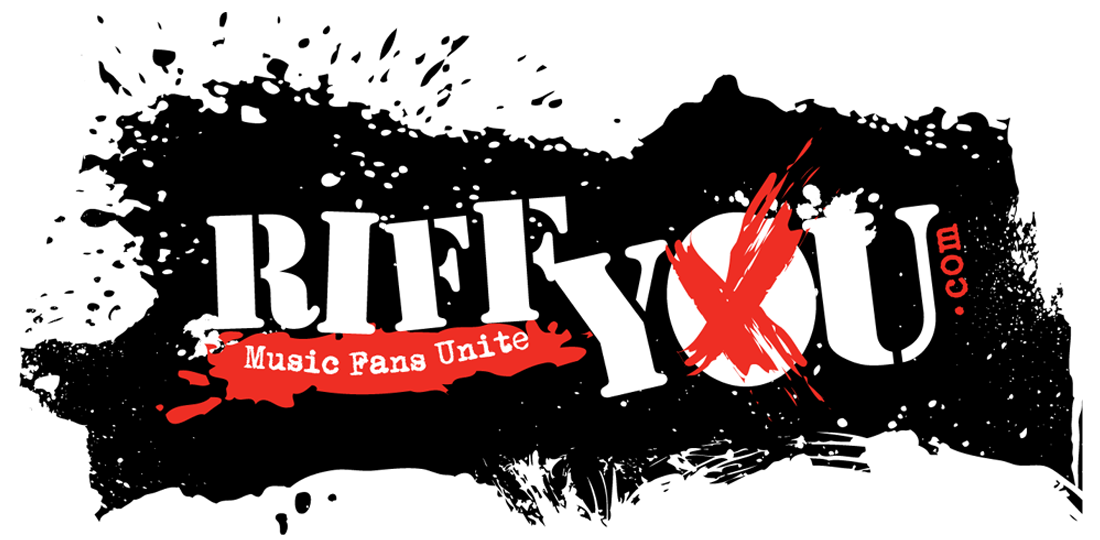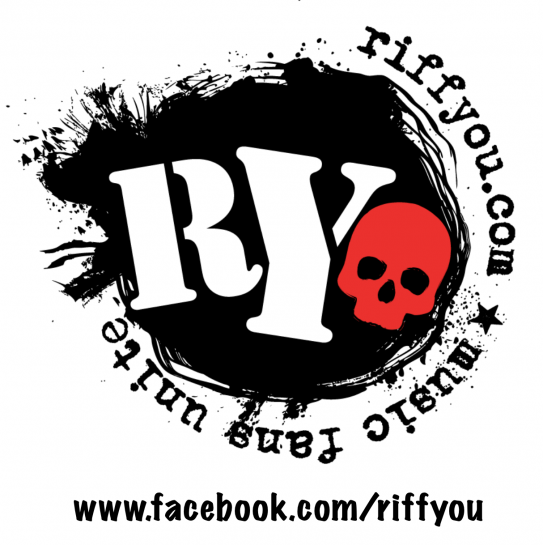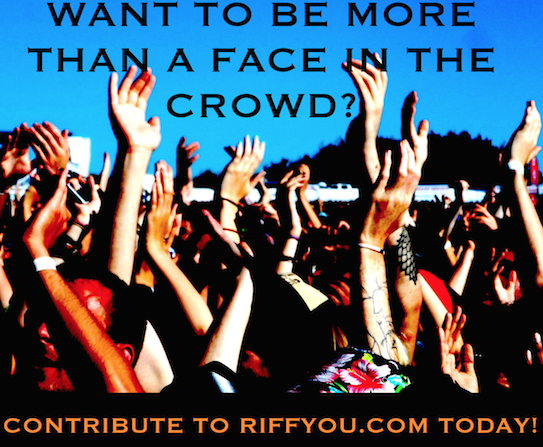Q&A: Anti-Flag on Internal Politics, Obama & Audience Affection
On May 25, the political punk rockers in Pittsburgh’s Anti-Flag gave us a roaring new album in the 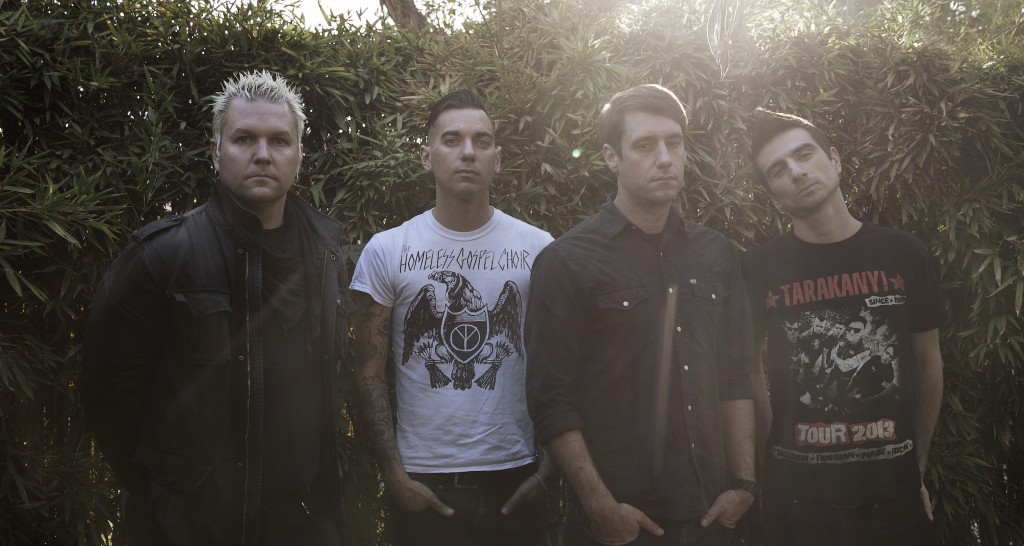 form of American Spring. While the band agrees that this 14-song offering is decidedly darker than recent recordings, hope still springs up in spots.
form of American Spring. While the band agrees that this 14-song offering is decidedly darker than recent recordings, hope still springs up in spots.
Recently, Riffyou.com sat in a Toronto-area pool hall with Anti-Flag’s Justin Sane and Pat Thetic to discuss American Spring’s inspiration, the broken promises of US President Barack Obama and giving audiences something to think about.
RY: Going into this album, what was your impression of America?
Pat: “I think you can hear that this album is darker for Anti-Flag than some of the other ones. [Chris] #2 was going through a divorce, my father died right before we recorded this album, but also there’s the realization that [President Barack] Obama has dropped the ball on his presidency and has not done the things we were hoping he’d do. Things that we wanted to change didn’t change. So there’s really a darkness to this album that’s different compared to our others.”
Justin: “What I think is interesting about that point is that while there is this darkness – and we are pointing to a lot of broad issues whether it be economics, injustice, or the police – there is a lot of hope on the album, too. I look at ‘Brandenburg Gate’ and I think that’s a song about hope. I look at [the album’s] artwork and I think that provides a lot of hope. We’re really delving into areas where we’re trying to say that anything is possible, anywhere, at anytime. We reference the Arab Spring by calling the album American Spring. The Arab Spring happened in a geographical part of the world where people believed these totalitarian regimes could never be challenged. But they were and that’s just one example that change can come at any time, [even] when people least expect it. I believe there is hope for America in that respect. The social and political ills that we are touching on, those things can definitely be turned around.”
RY: Do you feel a responsibility to give people that type of hope? I’m sure certain factions of America don’t see that light at the end of the tunnel.
Pat: “We don’t have a responsibility for that, but we are hopeful people. The reason why we continue to do this is because we do believe that change is possible and people will make the right decisions, if given the right information. Going back to Justin’s point about American Spring and the realization that one person went to Tahrir Square and created revolution across the whole country…that’s an inspiring thing. We took a lot of inspiration [from the idea] that one person could decide they’re going to make change and other people are going to be able to grab onto that and change things in the world.”
RY: Going back to what you were saying about Obama, what do you consider to be his biggest disappointment as President?
Pat: “It depends how you look at it. If you think of Obama as a good guy who really wants to achieve these things, but can’t because of the political system, that’s a disappointment in his ability to lead through the bullshit. If you think that he’s just a pawn that [gives into] economic interests, then you realize that he’s a disappointment for being an asshole. I don’t know which one is real. History will be able to tell us which is real. When you say you’re going to close down Guantanamo Bay and you don’t do it, that’s a kick in the nuts for us who believe in human rights.”
RY: Going from the George W. Bush extreme to Obama, is there any belief that the next US President will maybe act with more peoples’ interests in mind?
Pat: “Coming from the punk rock community, we’ve never really believed that any of these people would…”
Justin: “I had no expectations for Obama. But, the upside I saw for Obama was that he ran against John McCain eight years ago. McCain’s solution for everything is to have a war. So, I looked at Obama and thought that he probably wasn’t going to do all the things I wanted him to, but at least he’s not going to invade Iran – which is something McCain said he’d consider. Unfortunately, it really is about picking the lesser of two evils a lot of the time, as opposed to having expectations.”
RY: Considering how passionate you guys are about so many social and political issues, how do you zone in what you want to talk about on a given album?
Pat: “It’s just what connects with us on any given day.”
Justin: “Yeah, Pat will come in and be like, ‘I saw this…and it’s really interesting. We should right a song about it.’ It really has a lot to do with one of us being struck by something.”
RY: When I spoke earlier this year with Chris #2 about American Spring, he said that the album pulled more from the personal lives of the band than before. Was it exciting or scary to put more of yourselves out there?
Pat: “It wasn’t really thought about. It was ‘This is going on and we have to deal with it.’ It wasn’t a conscious decision.”
Justin: “I think I always interject personal stuff into songs without even knowing it. Song writing is such a personal thing and I’ll look back at songs a couple years from now and think, ‘Shit, I was writing about that an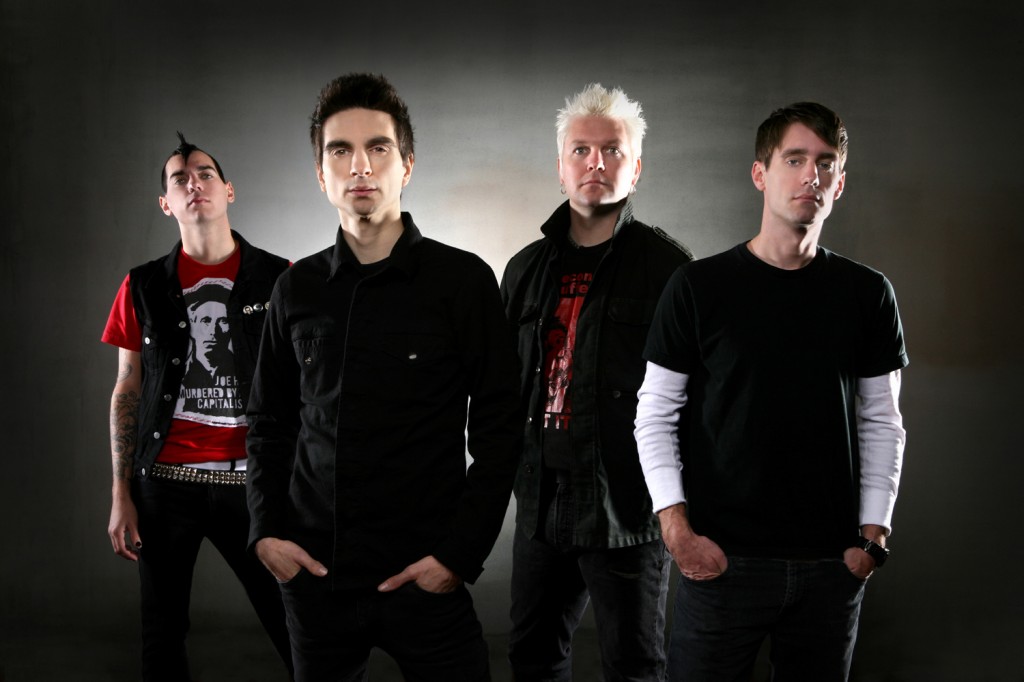 d I didn’t even know it.’”
d I didn’t even know it.’”
RY: Anti-Flag has always been good about giving people music to move along to, but once it’s really listened to, strong messages get discovered. Is this something that also comes naturally to do the band?
Pat: “We’ve gotten better as song writers and as musicians, so that makes the ideas we are putting out more accessible…because we put it in a form that’s easier to listen to. We write songs that we really enjoy and think sounds good.”
RY: When you meet your fans, do they touch on the music first, or what you’re saying?
Pat: It’s both. But for me, I’m most inspired by the kids who come up and tell me [about a song’s] meaning. The kids, however, are not going to be in the room if the music doesn’t connect with them at some level. The other day, a kid came up and said, ‘Last time I saw you, you said I should start playing drums. Now I have a band!’ I thought that was fucking awesome! On some level, [that fan] connected with the music and on some level he connected with the DIY ethic of creating it yourself, and on some level he connected with the politics.”
RY: When working on a new song, does everyone in the band have to agree with its point of view?
Pat: “We come from the same communities, so we usually have the same point of view on a situation. There may be a debate on how to say it, but usually the overall themes are pretty universally backed.”
RY: What are those debates like?
Pat: “Writing music is an emotional experience and there are some things where we are like ‘Ahh, I don’t like that!’ and someone else is like, ‘I really love it!’ It’s more about trying to say something the right way – that’s usually the debate.”
RY: After you put an album like American Spring out there, do you hope that the listeners get something specific out of it?
Justin: “I hope listeners will take certain meanings away from songs, but that obviously can’t be guaranteed. Quite often, on the flipside of that, you want people to take their own meanings away from songs. Sometimes people will bring a meaning to me, of something I’ve written, that I hadn’t seen before.”
-Adam Grant
Please be sure to follow us on Twitter @riffyou and at Facebook.com/riffyou.
